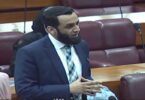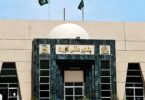Zaheer ud din Babar
Pakistan is currently still on the FATF’s gray list, but chances of its removal from that list are bright. The Financial Action Task Force said in their statement that “the country may be removed from the list after on-site visit to verify the implementation of its reforms on countering terror financing mechanisms”.
The FAFT has also announced a visit to Pakistan before October this year to make the final announcement. The International Atomic Energy Agency (IAEA) has also acknowledged that Pakistan has complied with all FATF requirements. Moreover, Pakistan has made great strides in prosecution.
The Prime Minister of Pakistan has congratulated the entire nation on the FATF’s praise of Pakistan’s performance. He said that all government personalities, concerned agencies and team deserved congratulations. The Chief of Army Staff General Qamar Javed Bajwa also termed the completion of FATF action plans as a great achievement, and that the performance of the cell in GHQ and the collective efforts of the nation were commendable.
In fact, it is no secret that the FATF was committed to the policy of keeping Pakistan on the gray list as part of a deliberate strategy. We should also not forget that India is also a member of FATF, which does not miss any opportunity to create problems for Pakistan. It is true that the previous government may have tried to get Pakistan out of the FATF, but the manner in which the coalition government is trying is also certainly commendable. The Minister of State of External Affairs Hina Rabbani Khar categorically recognized the role of the administration of the previous government in the matter of FATF.
Pakistan initially started to work towards its removal from the gray list back in 2017, when Pakistan’s role in Afghanistan started to wane. Therefore, in view of the changing situation, Pakistan contacted the FATF and confirmed that serious steps needed to be taken to meet the demands of the international body. In this regard, Islamabad formed a National Task Force to achieve the objectives laid out by the FATF and sent evidence to the FATF that reiterated Pakistan’s commitment to achieve said objectives. There exists no doubt that Pakistan’s civil and military leadership is working together to meet the demands of the FATF.
One proof of this is that DG ISPR stated in an interview in 2019 that there is coordination between no more than 30 ministries and departments to get out of the FATF gray list. The DG ISPR said that due to this strategy, steps would be taken to effectively control money laundering and terror financing.
Efforts to meet the demands of the FATF have yielded positive results, with Pakistan recovering Rs. 58 million. According to experts, Pakistan also overcame shortcomings in fiscal policy and practice. For example, banks were accustomed for the first time that they should identify their customers through biometric and that the law enforcement agencies also held themselves accountable. Pakistan also effectively removed the legal barriers to bring the criminals to justice.
The question is, what good would it do for Pakistan if it got out of the FATF gray list? The world has become a global village, with terrorism and extremism being declared a serious threat. In the aftermath of 9/11, no country was willing to tolerate the existence of Muslim extremist groups. One more thing to note about the FATF is that the body is, by no means, neutral. The pressure exerted by the FATF on Pakistan to punish Hafiz Saeed is an example. The majority of FATF members are from Western countries, so the growing relations between Pakistan and China do not please these countries in any way. Former Prime Minister Imran Khan has created many problem for the country and the nation. Even now, his protests and dharnas are creating a climate of political instability in the country. It is now up to Shahbaz Sharif, with all his sincerity and good intentions, to promote mutual cooperation and pursue national interests not only with China and the United States, but also with every other country in the world.






